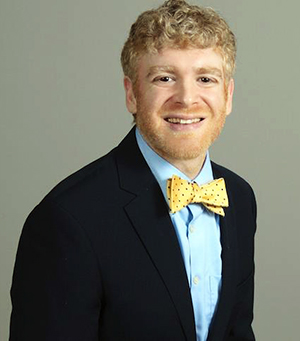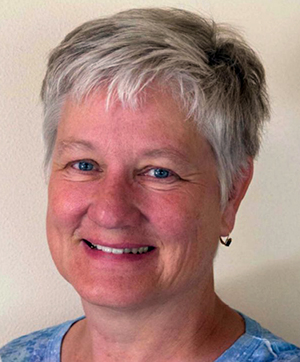STUDY GUIDE
New office helps researchers with regulatory applications
By Kara Mason
April 2024
Behind all the fanfare that’s surrounded new psychedelics research is a heavy dose of paperwork.
"You have to start somewhere,” says Andrew Novick, MD, PhD, assistant professor of psychiatry at the University of Colorado School of Medicine who this spring begins a new study on the psychedelic drug psilocybin and whether it is effective as a treatment for major depressive disorder.
He submitted an investigative new drug (IND) application to the U.S. Food and Drug Administration (FDA) last July for permission to use psilocybin in his study.
“We want to specifically study a symptom called anhedonia, which is difficulty with motivation and capacity to feel pleasure,” Novick says. “And to do that, you need permission from the FDA because psilocybin is not yet an approved drug.”
The application to gain the federal agency’s approval to use psilocybin —
or any unapproved drug — can be a heavy administrative lift, especially
on top of designing a thorough study and acquiring necessary funding.

Andrew Novick, MD, PhD
“This is where we come in,” says Heike Newman, program director the newly established Investigational New Drug and Device Office (IND/IDE) on the CU Anschutz Medical Campus. The office assists investigators with the administrative requirements of the IND/IDE process. There are currently more than 100 locally held active INDs and IDEs across the campus, Newman says. Researchers submitted 48 applications in 2021, 49 in 2022, and 41 in 2023. The total number is expected to grow.
Successful submissions to the FDA rely on a meticulous understanding of the evolving requirements and submission processes. Newman arrived on the campus in 2012, training researchers how to compile and submit to FDA their own applications. In turn, those researchers were expected to assist and train others. But with the growing number of submissions to the FDA, and continuous significant changes in both format and processes for IND or IDE submissions, this approach no longer seemed reasonable.
Since July 2023, the IND/IDE office steps in and takes some of the complex administrative work off the plates of researchers like Novick and allows them to focus on their science and on operationalizing their studies.
The IND/IDE Office staff emphasize that they aren’t subject matter experts for each individual study, and are not involved in recruitment and consent processes, data collection, communicating with drug or device manufacturers, budget development or securing funding for studies. Other campus support teams can assist with those aspects. But without IND approval, Novick could not conduct his research.
“The FDA’s sign-off is the crucial piece,” he says. “They’re the ones that have the federal mandate to ensure safety of individuals who will use these drugs. There is no moving ahead without them.”

Heike Newman
He says the IND/IDE Office guided him through the IND application process — his first — and freed him to focus on other aspects of the study.
“I think there’s an assumption in the public that research just happens, but it’s under the involvement of federal agencies, even when you want to use an existing treatment in a new way,” he explains. “There’s a big ‘do not pass go’ that guarantees safety.”
Medical researchers face a lengthy process if they envision getting a new drug or device to market. The average lifecycle of drug development from discovery to approval is about 10 to 12 years, and only about 8%-10% of drug products from the preclinical phase become FDA-approved products.
“We want to give our researchers the best prospect in conducting meaningful research and creating safe studies for participants,” Newman says. “We will help you through the regulatory steps.”
For Novick, beginning his psilocybin study has been a long time coming, but he’s excited for what it could mean for people with treatment-resistant depression and for researchers, academics, and students who want to continue investigating the drug.
“We want to demonstrate whether this can be an effective option for patients that haven’t responded to other treatments and whether this is targeting the right parts of the brain,” he explains. “A successful study will tell us whether we should continue to investigate this compound.”